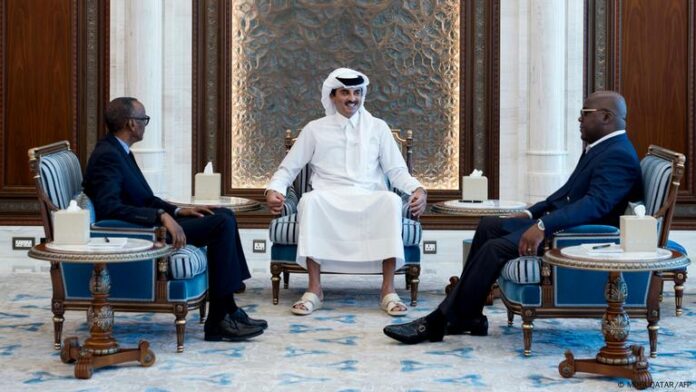By Kabiru Abdulrauf
Peace talks between the government of the Democratic Republic of Congo (DRC) and the Rwanda-backed M23 rebels, which were scheduled to begin in Doha on Wednesday, have been postponed. The discussions were initially expected to be the first direct dialogue between the two sides since the M23 captured eastern Congo’s two largest cities in a rapid offensive that has left thousands dead and displaced hundreds of thousands more.
A Congolese official confirmed that the meeting was delayed, citing that invitations had not been sent as of Monday, though the reasons for the postponement remain unclear. The M23 rebels, an ethnic Tutsi-led militia, have long sought direct negotiations with the DRC government, but President Felix Tshisekedi had previously refused to engage, arguing that the M23 is merely a proxy for Rwanda.
The conflict, rooted in the aftermath of the 1994 Rwandan genocide and competition for control of mineral resources, has raised concerns about a potential wider regional war. The United Nations and Western governments have accused Rwanda of supplying arms and troops to the M23, an allegation that Rwanda denies, claiming its military acts in self-defense against Congo’s army and a militia tied to the genocide.
In March, Qatar brokered an unexpected meeting between Congolese President Tshisekedi and Rwandan President Paul Kagame, where both leaders called for a ceasefire, raising hopes of a diplomatic resolution. However, the delay in the latest round of talks highlights the continued fragility of peace efforts in the region.
The international community watches closely, as the outcome of these negotiations will be crucial in determining whether the conflict can be de-escalated or if it will spiral further into a regional war.










